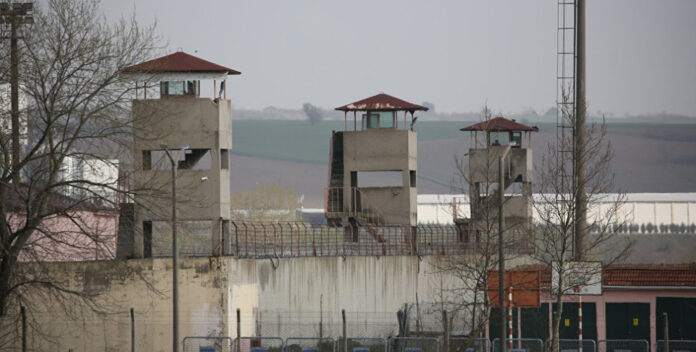At least 68 inmates in Turkey’s prisons died by suicide between January 1 and November 30, 2024 according to data from the Justice Ministry released in response to a parliamentary question, the T24 news website reported.
The ministry confirmed the figure in its written response to a question submitted by Ömer Faruk Gergerlioğlu, a human rights advocate and lawmaker from the pro-Kurdish Peoples’ Equality and Democracy Party (DEM Party), who has long raised concerns about prison conditions.
The ministry said it has developed a Mental Health Assessment and Intervention Program to address the issue.
According to the ministry, the program’s guide includes steps for “individual intervention in suicidal and self-harming behaviors,” detailing warning signs, monitoring, referral processes and both short and long-term psychosocial interventions. Prison administrators have received training on the program, the ministry said.
In facilities where suicide and suicide attempts are more common, prison staff receive additional training through the Suicide Prevention Education Program, which is conducted remotely by psychologists and social workers, the ministry added.
Gergerlioğlu, a physician and human rights advocate, criticized the ministry’s response, saying systemic problems in prisons are worsening inmates’ physical and mental health.
He pointed to a range of issues, including limited access to health care, overcrowded wards, prison designs known as “well-type” facilities and the use of strip-searches.
“Every prison should have a psychiatrist,” he said. “But psychiatrists only come occasionally, and referrals to psychiatry take place very late. There are psychologists in prisons, but instead of focusing on inmates’ mental health, they mostly prepare evaluations for Prison Administration Observation Boards — and these reports often recommend against release.”
Administrative observation boards, review bodies established in Turkish prisons in January 2021, have been delaying the parole of prisoners by three to six months, raising concerns over multiple rights violations.
Gergerlioğlu also noted that Turkey’s prisons, which have a capacity of approximately 300,000 people, currently hold nearly 450,000 inmates.
The government has also weaponized incarceration by denying parole to over 8,500 inmates since 2021, including many political prisoners. Meanwhile, the plight of children in detention remains dire — 759 children under the age of 6 are currently growing up behind bars with their mothers, enduring conditions that violate international human rights standards.















